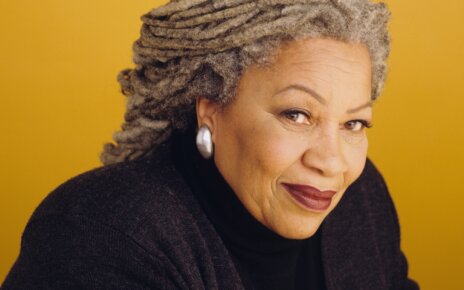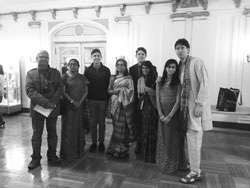The Leon Hess Business School (LHBS) is sponsoring the School’s inaugural student-led team for the national College Fed Challenge 2022. The team, composed of current business undergraduate students, recently submitted the first round of requirements on Thursday, Oct. 6.
Richard Roberts, MBA, Specialist Professor in the Department of Economics, Finance, and Real Estate, initiated the School’s involvement in the College Fed Challenge and is the team’s faculty advisor.
Prior to his career at Monmouth, Roberts was an executive of the Federal Reserve System, heading the New York Central Bank’s Credit Risk Management during the 2008 financial crisis. Because of his connections with the Fed, he wanted to expose Monmouth students to the organization of the Federal Reserve, as well as the nationally recognized competition.
“The College Fed Challenge is an academic competition where teams of students research and analyze economic conditions and present their analysis, including a recommendation for monetary policy…The competition is a good example of the experience-based education that the LHBS champions,” explained Roberts.
The competition is hosted by the United States’ Federal Reserve, along with other Federal Reserve Banks and regional planning universities. Teams that make it to the final round are normally invited to Washington D.C. to present live their analysis, forecasts, and monetary policy recommendations to a panel of Federal Reserve officials.
This select group of students were chosen based on academic performance in their macroeconomic courses. Monmouth’s team was nominated by their professors and recommended to Roberts to participate in the competition.
Alexander Korolik, a senior business student, described his role as a member of the team. He started, “My role in the challenge was to head the development of our script, along with my fellow members Dustin Ho, Darian Ricciardi, and Mue Carroll.”
Korolik likewise reflected on the team’s experience in working together. “The challenge presented an amazing opportunity for us as LHBS students, and I could not be happier to have worked on this with them…Being a part of a collaborative team, and applying what we have learned about macroeconomic trends and monetary policy, helped us all realize what college is really about.”
Roberts agreed with Korolik, explaining the purpose of introducing students to experiential learning opportunities. “Platforms such as this one combines the academic material learned in the classroom with real-life scenarios, enhancing the development of students’ research skills, critical thinking capacities, and ability to present well,” said Roberts.
Dustin Ho, a senior business student, felt similarly to his Fed Challenge colleague. He began, “Because we met regularly to work together, we were able to pull research and talent into our presentation…The degree of collaboration and research required for this challenge served as great exposure to real economic research and analysis.”
While the competition enables students to employ a variety of different skillsets, Roberts emphasized why it is crucial for students to understand monetary policymaking and the considerations that go into such decisions.
Roberts noted, “Analyzing today’s economic environment is one of the most challenging I’ve seen in my many years in the observing market trends…We are increasingly likely to face a recession by third quarter of next year, which is when some students will head out into the job market for prospective employment opportunities.”
Roberts explained that the policies Fed pursues may impact people’s future employment, so it is important for students to educate themselves and prepare for what may occur.
Korolik added, “Economics is one of those subjects that gets heavily debated all the time. From monetary policy to microeconomics with things like game theory—we see economics everywhere around us, and it quite literally explains how liquidity (cash) flows through markets, and how certain inputs lead to outputs.”
Korolik ended by thanking Roberts for the opportunity to compete in the Fed Challenge. “I would like to thank Professor Roberts for nominating us as members, and for giving us the tools to be a part of something larger. He has been an excellent professor, and I know us members’ only hope is to set this up for future years to come,” concluded Korolik.



